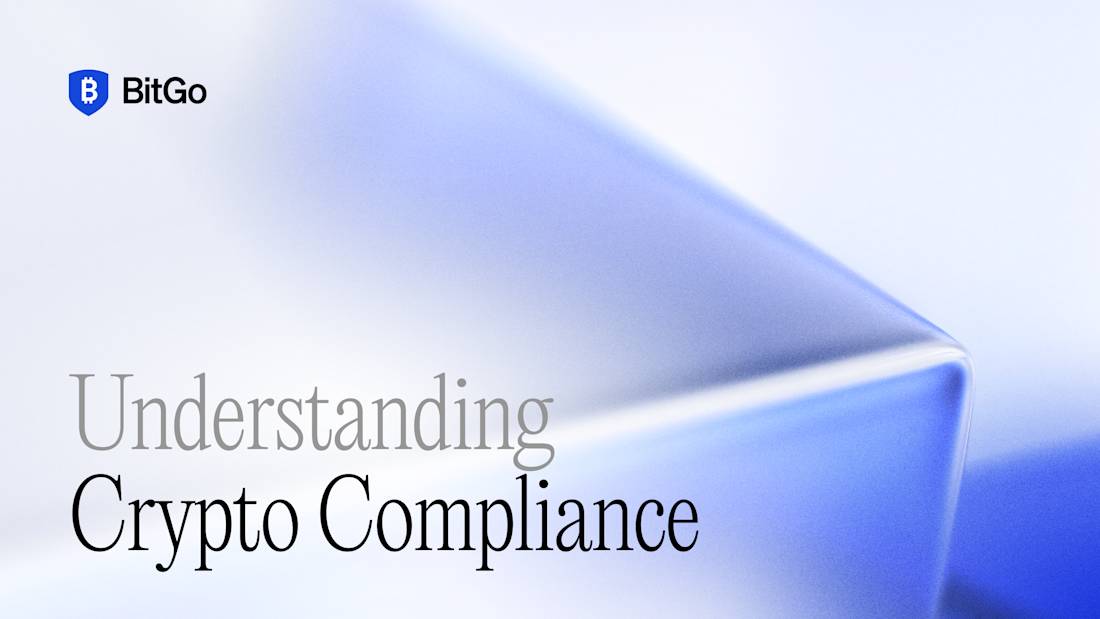Crypto regulation compliance is critical for institutions holding or managing digital assets. The industry is maturing quickly, and staying ahead of evolving regulations is key to avoiding costly missteps.
Regulators like the Securities and Exchange Commission (SEC), the Commodity Futures Trading Commission (CFTC), and the Financial Crimes Enforcement Network (FinCEN) actively monitor the space. Key enforcement priorities include digital assets, account intrusions, hacking and insider trading, and market manipulation.
The SEC’s Crypto Task Force, for example, has flagged cybersecurity controls and inadequate disclosures as recurring missteps among regulated entities.
Here’s what companies need to know about institutional crypto compliance to stay current on regulatory expectations and protect client capital.
Key Takeaways
-
Failure to meet crypto regulatory compliance obligations can result in fines, enforcement actions, and reputational risk.
-
Multiple agencies, including the Securities and Exchange Commission (SEC), the Commodity Futures Trading Commission (CFTC), and the Financial Crimes Enforcement Network (FinCEN), provide regulatory oversight.
-
Working with a regulated custodian can help institutions meet many common crypto regulation compliance requirements.
Why Crypto Regulation Matters
Crypto regulation has advanced significantly since FinCEN issued its first guidance on virtual currencies in 2013. SEC enforcement actions related to compliance missteps can lead to shuttered projects and financial losses. In 2024, for example, the agency filed enforcement actions against several crypto firms for various compliance failures.
However, following regulations is not just about avoiding trouble with government agencies. It’s also about protecting institutions and clients from fraud and other losses.
A well-defined rulebook lowers legal risk, unlocks new institutional capital, and drives product innovation. For example, when the SEC approved Bitcoin exchange-traded funds (ETFs) in January 2024, large capital inflows and record-setting valuations resulted.
Conversely, noncompliance can trigger costly investigations, delistings, or even personal liability for executives. Staying current on government standards helps exchanges, custodians, and fintech startups alike expand responsibly while protecting consumers and the broader financial system.
While Bitcoin and other digital assets are not making headlines as frequently as during prior cryptocurrency booms, they’re still a focus for elected officials and regulating entities. For example, the U.S. House Financial Services Committee advanced a bipartisan stablecoin bill in April 2025, aiming to establish a federal framework for stablecoin issuance and operation. Additionally, the SEC recently clarified that certain payment‑stablecoins fall outside securities laws.
Critical Compliance Requirements for Crypto
Even though regulations on cryptocurrency vary between jurisdictions—from Washington to Brussels—the essential compliance pillars remain strikingly consistent. Here’s what exchange, custodian, and token issuers need to have buttoned up:
1. Anti‑Money Laundering (AML) and Know‑Your‑Customer (KYC)
FinCEN’s latest proposals extend reporting duties to mixer‑related transactions and tighten expectations for customer identification. Around the globe, the Financial Action Task Force (FATF) Travel Rule requires virtual asset service providers to transmit verified sender and recipient data for qualifying transfers, making strong KYC workflows non-negotiable.
2. Custody and Safeguarding of Client Assets
The SEC’s proposed Safeguarding Rule would obligate advisers to use qualified custodians, segregate client crypto from firm assets, and submit to surprise examinations. Europe’s Markets in Crypto-Assets Regulation (MiCA) has similar goals, insisting on capital buffers and documented wallet‑control procedures before a firm can provide services across the European Union (EU). Regulatory-grade digital asset security is no longer optional.
3. Derivatives and Market Conduct Oversight
If an entity lists futures, options, or perpetual swaps, the CFTC views it as a derivatives venue subject to registration, trade reporting, and anti‑manipulation standards. Recent CFTC enforcement actions show that failure to monitor wash trades or spoofing can generate penalties that dwarf the original profit.
4. Recordkeeping and Data Retention
U.S. securities rules mandate record retention for several purposes, including anti-money laundering. MiCA imposes a comparable retention rule. Robust logging across on‑chain and off‑chain systems is essential to survive audits and litigation.
5. Operational Resilience and Cybersecurity
Regulators expect clear policies covering incident response, private‑key management, and third‑party risk. Documented resilience planning is quickly becoming a must‑have for institutional cryptocurrency holders and service providers.
Crypto Regulation Compliance in Practice
Effective crypto regulation compliance requires building systems that generate records on demand and safely store client assets. Client-owned digital assets shouldn’t be mingled with company funds or susceptible to risk if the company runs into financial trouble.
Best-in-class crypto regulation compliance includes these core tasks:
-
Audit Trails and Immutable Reporting: Every token movement, on‑chain or off‑chain, should automatically feed into a tamper‑resistant log that reconciles to the general ledger. Auditors should ensure logs include timestamped entries that are easily traced from deposit to withdrawal.
-
Asset Segregation and Proof‑of‑Reserves: Client holdings belong in clearly labeled wallets or omnibus addresses supported by daily balance verifications. Periodic proof‑of‑reserve reports demonstrate that customer liabilities are fully covered. Only authorized, vetted individuals should have access to company-controlled wallets, with multi-signature authentication required for withdrawals.
-
Automated Policy Enforcement and Continuous Monitoring: Real‑time rules engines should flag suspicious flows, enforce thresholds, and block transactions involving sanctioned addresses. Automating these checks reduces human error and creates a defensible audit record when regulators review incident logs. Recent developments in artificial intelligence and machine learning can further help identify suspicious transactions before they are executed.
-
Regulated Custody Partnerships: Holding private keys in‑house can introduce material compliance risk. Leveraging qualified custodians that meet jurisdictional capital and cybersecurity standards shifts operational risk to specialists and satisfies safeguarding requirements in the U.S., EU, and beyond.
How Regulated Custody Supports Compliance
A qualified, regulated custodian is a trust company or equivalent entity that holds client digital assets under an explicit legal framework. It employs bank‑style examinations, maintains audited internal controls, and is insured against theft or loss.
Working with a regulated custodian removes several common headaches for teams focused on institutional crypto compliance. A qualified custodian automatically ensures a firm satisfies the SEC’s proposed Safeguarding Rule, meets MiCA capital adequacy requirements, and proves to auditors that client coins and tokens are kept fully segregated and bankruptcy‑proof.
BitGo offers $250 million in cold‑storage insurance, SOC2 Type 2 attestation, and policy‑based workflows that log every transaction for easy review. These features allow independent verification that assets are safe, reconciliation‑ready, and available to institutions and their end users when needed.
Learn how regulated custodians provide financial institutions turnkey support, regulation‑ready storage, and airtight recordkeeping in BitGo’s regulated crypto custody overview.
Looking Ahead: Next Steps for Crypto Regulatory Compliance
Crypto regulation compliance isn’t a one‑and‑done project. Remaining compliant is an ongoing task, but it’s well worth the added cost and effort for institutional cryptocurrency holdings. Crypto regulation compliance is part of the path to legitimacy, investor confidence, and sustainability.
As cryptocurrency regulations mature, it’s essential to monitor for industry-impacting updates. Forward-looking companies engage in the rulemaking process, respond during comment periods, and work closely with regulators to ensure win-win outcomes for the industry and clients.
Firms should choose partners that lead with compliance, especially regulated custodians that take on custody, reporting, and audit burdens at scale, so the company can focus on its products and services.
FAQ
What is crypto regulation compliance?
Crypto regulation compliance refers to meeting legal and regulatory standards that apply to digital asset businesses. This includes following anti-money laundering (AML) rules, maintaining secure custody practices, and adhering to jurisdiction-specific licensing requirements.
Why is crypto regulation compliance important for businesses?
Compliance builds trust, attracts institutional capital, and reduces exposure to enforcement actions. Effective compliance procedures protect client assets in the digital currency marketplace.
What are the key components of compliance in the crypto sector?
Crypto regulatory compliance includes know-your-customer (KYC) and anti-money laundering procedures, asset segregation, secure custody, transaction monitoring, and transparent recordkeeping.
How can organizations ensure adherence to crypto regulations?
Institutions can start by adding compliance tasks to their operations. This translates to working with qualified custodians, automating policy enforcement where possible, and remaining engaged with regulators and legal counsel as the regulatory environment evolves. A proactive, audit-ready approach is essential.
What challenges do businesses face with crypto regulation compliance?
Regulatory uncertainty, evolving standards, and cross-border complexity make compliance a moving target. Smaller teams often struggle with limited resources, while larger firms face pressure to scale systems quickly. Choosing the right partners can help bridge the gap.
Table of Contents
The latest
All NewsAbout BitGo
BitGo is the digital asset infrastructure company, delivering custody, wallets, staking, trading, financing, and settlement services from regulated cold storage. Since our founding in 2013, we have been focused on accelerating the transition of the financial system to a digital asset economy. With a global presence and multiple regulated entities, BitGo serves thousands of institutions, including many of the industry's top brands, exchanges, and platforms, and millions of retail investors worldwide. For more information, visit www.bitgo.com.
©2026 BitGo, Inc. (collectively with its parent, affiliates, and subsidiaries, “BitGo”). All rights reserved. BitGo Bank & Trust, National Association (“BitGo Bank & Trust”) is a national trust bank chartered and regulated by the Office of the Comptroller of the Currency (OCC). BitGo Bank & Trust is a wholly-owned subsidiary of BitGo Holdings, Inc., a Delaware corporation headquartered in Palo Alto, California. Other BitGo entities include BitGo, Inc. and BitGo Prime LLC, each of which is a separately operated affiliate of BitGo Bank & Trust.
BitGo does not offer legal, tax, accounting, or investment advisory services. The information contained herein is for informational and marketing purposes only and should not be construed as legal, tax, or investment advice. You should consult with your own legal, tax, and investment advisor for questions about your specific circumstances.
Digital assets are subject to a high degree of risk, including the possible loss of the entire principal amount invested. Past performance and illustrative examples do not guarantee future results. The value of digital assets can fluctuate significantly and may become worthless. No BitGo communication is intended to imply that any digital asset services are low-risk or risk-free. BitGo is not a registered broker-dealer and is not a member of the Securities Investor Protection Corporation (“SIPC”) or the Financial Industry Regulatory Authority (“FINRA”). Digital assets held in custody are not guaranteed by BitGo and are not subject to the insurance protections of the Federal Deposit Insurance Corporation (“FDIC”) or SIPC. Custody and other digital asset services are subject to eligibility, jurisdictional, and regulatory restrictions. Availability of specific products and services may vary by location and entity.
BitGo endeavors to provide accurate information on its websites, press releases, blogs, and presentations, but cannot guarantee all content is correct, completed, or updated. Content is subject to change without notice. BitGo disclaims any obligation to update or supplement such information except as required by applicable law or regulation.
BitGo makes no representation that the information contained herein is appropriate for use in any jurisdiction where its distribution or use would be contrary to law or regulation or would subject BitGo or any of its affiliates to any registration or licensing requirements in such jurisdiction. Persons who access this information are responsible for complying with all applicable laws and regulations.




